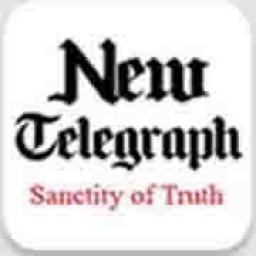Majority believe members of the Bretton Woods institutions—easily identified as the World Bank and the International Monetary Fund (IMF)—are the architects of the country’s dimensional woes, deprivation, and source of their current socio- economic disorder.
In all arguments, be it pedestrian or an elite’s discourse that borders on the state of the economy, the IMF and World Bank are presumably causative agents that are easily pointed to as the root causes of the miserable living standards.
The position of an average Nigerian on the IMF/World Bank is not unconnected to the institute’s policy prescriptions to developing nations like Nigeria.
Subsidy/FX policies
The IMF is adamant and unapologetic about its policy advice to Nigeria with respect to the agelong fuel subsidy retention policy.
The Fund believes fuel subsidy management is characterised by fraud, which enriches an insignificant few, leaving the masses in deprivation. In the 2023 fiscal year, the government budgeted N3.6 trillion for fuel subsidies.
A draft copy report of the Accelerated Stabilisation and Advancement Plan (ASAP) presented to President Tinubu by the Minister of Finance and Coordinating Minister for Economy, Wale Edun, earlier this year put estimated fuel subsidy expenditure for 2024 at N5.4 trillion, a sum of N1.8 trillion more than the amount spent in 2023.
Over time, the amount voted for fuel subsidy in every budget was a huge sum. Not a few believe payment of fuel subsidies by the Federal Government was a “scam” that benefited some people in power who were making billions of naira from it.
The Fund posited that with the removal of fuel subsidies, the government could free up resources that would have been spent on the subsidies and invest them in other critical sectors such as education, healthcare, security, and infrastructure.
This it believes will not only improve the standard of living for citizens but also enhance economic growth. In addition, the Fund advocated for the halt ing of the hitherto regimented forex exchange policy rate by the Central Bank.
It advised the CBN to adopt a liberalised forex exchange policy regime and transition to an inflation-targeting regime for a healthier and prosperous economy.
The Fund was consistent in its policy advice (fuel subsidy removal and floating of forex exchange policy) to all previous administrations. The current administration took a bold step on May 29, 2023.
It phased out fuel subsidy and adopted a market-driven foreign exchange rate policy. The adoption of the twin policy reforms—fuel subsidy removal and floating of forex exchange rate policy—by the current administration escalated the cost-of-living crisis to an unimaginable level.
Adequate and proper feedings became a past time for the average Nigerian household. The cost of all items and essential services shot exceedingly high over unmitigated inflationary pressure.
Experts’ views
Experts expressed divergent views on the adoption of IMF policies for administering the Nigerian economy.
A former Chief of Staff to immediate past President, Muhammadu Buhari, and Nigeria’s former Permanent Representative to the United Nations, Prof. Ibrahim Agboola Gambari, declared that years of economic prescriptions from the International Monetary Fund (IMF) and the World Bank failed to transform Nigeria’s economy for the better.
Speaking last week at the Realnews 12th Anniversary Lecture in Lagos, Gambari stated that if the economic policies of the IMF and World Bank had been effective, Nigerians would be living more prosperously today.
“Frankly speaking, all the prescriptions of the IMF and the World Bank over the years, where has it gotten us? Now that I’m no longer part of the government, I can speak more freely. “It’s time we define our problems and design ways to solve them. If the IMF and World Bank’s prescriptions had been correct, we should be living
It’s high time the government adopted a mixture of homegrown suitable economic policies to address prevailing challenges
happily today—but we are not. To make matters worse, the world itself is changing, and the international community is evolving; global relationships and norms are shifting, Prof. Gambari said. Mr. Gabriel Idakolo, an expert on wealth management, said the IMF and World Bank lacked deeper knowledge about the Nigerian economy.
“The World Bank and IMF do not always uphold the policy knowledge about the country. The advice by these institutions is always to put government at the loggerhead with their people.
The World Bank has been advising the Nigerian government to continue with inflationary policies. “The World Bank and IMF reforms are always skewed to favour authoritarianism of the government.
The Nigerian government should critically focus on homegrown policies designed to put the welfare of the people first, as seen in developed countries like the USA, UK, etc.
“The potential of Nigeria is in the productive capacities of Nigeria. Nigeria has over 60% of her population as youth, with the energy and talent to grow Nigeria`s economy given the capacity inherent in their productivity.
The GDP of countries is measured using their individual currencies. The currencies are only converted into US dollars when it’s time to compare values with output.
“Achieving economic reform requires well-targeted strategies,” he advocated. A northern group, Arewa Think Tank (ATT), recently warned officials of the International Monetary Fund (IMF) and the World Bank to stop distracting President Bola Tinubu from implementing good policies for Nigerian citizens.
The group said IMF policies had failed to transform Nigeria’s economy for the better over the years. In a statement by the group convener of ATT, Muhammad Alhaji Yakubu, it was noted that the IMF was trying to discourage President Tinubu from ensuring that the people of Nigeria enjoy dividends of democracy sooner rather than later.
“We want to condemn the IMF in all ramifications. We want to remind them that if they cannot pay us in the good coins in the 70s that Nigeria borrowed them money, they should leave us alone.
If you see the IMF saying that Nigeria is working, it means the country is working against its citizens. Nigeria should not take this IMF seriously. It is because they have noticed that President Tinubu’s policies are working seriously, and that is why they want to discourage him and distract him,” said the group.
Nigeria’s development The Fund said its policy advise for Nigeria, fuel subsidy removal and the foreign exchange (FX) floating, was necessary for Nigeria’s macroeconomic stability.
The Fund’s Managing Director, Kristalina Georgieva, reechoed this stance recently. She commended Nigeria’s economic reforms under the leadership of President Bola Tinubu.
In a statement on her X handle last week, which was released after a meeting with President Tinubu at the G20 Summit in Brazil, Georgieva, she hailed Nigeria’s decisive measures aimed at fostering economic growth and creating jobs for its citizens.
Describing her engagement with President Tinubu as “excellent,” the IMF chief highlighted the progress made by Nigeria in its quest for economic stability.
She further assured that the IMF remained strongly committed to supporting Nigeria on its path to recovery and sustained development. Excellent meeting with Nigerian President @officialABAT at the #G20 Summit.
Commended Nigeria’s decisive actions to reform the economy, accelerate growth, and generate jobs for its vibrant population. The IMF strongly supports Nigeria on this journey.
Succour
In the face of the implementation of tough policy reforms, President Tinubu assured Nigerians of improved living standards in the time ahead. His administration will continue prioritising the welfare of the poor and most vulnerable even as the economic reforms bear fruit.
Tinubu gave the assurance last week in Rio de Janeiro, Brazil, when the Managing Director of the International Monetary Fund (IMF), Georgieva paid him a courtesy call on the sidelines of the G20 Leaders’ Summit.
While acknowledging that the reforms had weakened Nigerians’ purchasing power, President Tinubu said his administration would continue to provide social safety nets to cushion the unintended consequences.
Last line
It’s high time the government adopted a mixture of homegrown suitable economic policies to address prevailing challenges.
Please follow and like us:

 2 hours ago
7
2 hours ago
7











